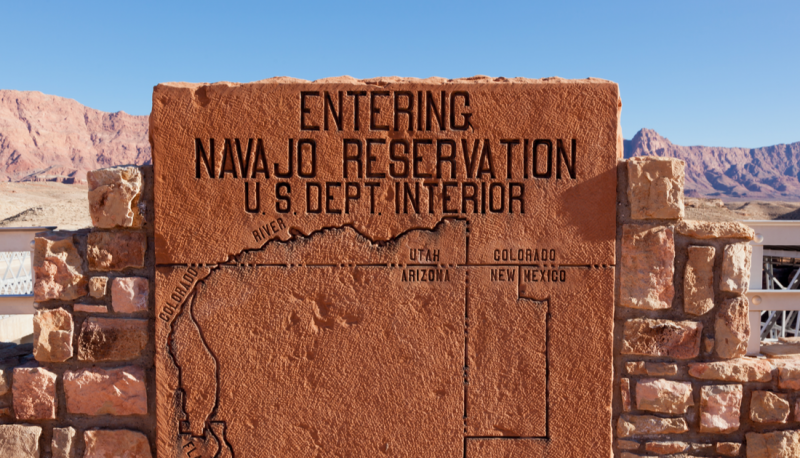During this unprecedented emergency, People for the American Way has continued to work to safeguard vulnerable communities. We are pushing our lawmakers for solutions to address these inequities, and to help our members stay aware and up-to-date, we are sharing emerging news and data on the blog every week to highlight how our vulnerable communities are suffering and offer resources on how to get involved in our work to protect them. Read our previous posts here.
Today, we’re covering the impact on Native Americans and the challenges they are facing amid this global health crisis.
As the fatal impact of COVID-19 continues to reach new heights, the disproportionate impact on communities of color, low-income folks and other vulnerable Americans has become increasingly clear.
Native American communities in the U.S. have survived persecution and violence since the earliest colonizers began to seize their land. In addition to the brutal colonial conquest and mass genocide they endured, Native people were also hit by multiple infectious disease epidemics that wiped out more than 70 percent of their population. Since then, oppressive policies, practices and social discrimination have further pushed Native people to the margins of our society.
Now, that legacy of oppressive cruelty is manifesting yet again during the coronavirus pandemic. Native American tribes are contracting the virus at disproportionately high rates. In particular, the Navajo Nation (which covers the corners of Utah, New Mexico and Arizona) trails only New Jersey and New York as the place with the highest infection rate. As with other communities of color, health disparities and higher rates of poverty and lack of insurance in Indian Country all make tribal groups especially vulnerable to the virus. Unfortunately, nearly 80 percent of state health departments are not specifically counting Native Americans in demographic data on the virus’s impact on communities of color, a move that further raises fears about hidden health emergencies.
Meanwhile, tribal government leaders are still waiting to receive the $8 billion in direct emergency relief from the CARES Act. For many, this is just the last in a long line of broken promises. As Navajo Nation President Jonathan Nez put it, “We are United States citizens, but we’re not treated like that … We once again have been forgotten by our own government.” The Treasury Department’s deadline to distribute those funds has already passed. Sen. Tom Udall (D-N.M.), the vice chairman of the Senate Indian Affairs Committee, led the fight to include Native funds in the bill. On the disbursement delay, he said, “Treasury is not familiar with tribes. They don’t know how to interact in the appropriate way with tribes and they’re just not getting the job done.”
The omission of casinos in the federal Paycheck Protection Program has further compounded the virus’s dangerous economic impact on Native American tribes. About 1,000 casinos nationwide have shuttered since the coronavirus first hit the United States. Muscogee Creek Nation Communications Director Jason Salsman estimates that his tribe is losing an estimated $5 million a month due to the closures. Because many tribes rely on casinos as their primary source of income, it will become even more difficult to provide for their citizens.
In addition to these immediate concerns, the impact of the pandemic uniquely affects voting rights for Native Americans who live on tribal land. With the November elections just six months away, states across the country are planning to expand opportunities to vote by mail. This step will help many Americans safely cast a ballot without compromising their health and safety. But since many people living on tribal lands lack a physical address, the vote-by-mail method would only create additional barriers to voting.
Especially during this pandemic, it’s critical that we stand in solidarity with tribal communities and fight for their safety, their wellbeing, their rights and prosperity. Native Americans deserve to thrive and live with dignity. Let’s lead with the ideals we aspire to – freedom, equality, opportunity and justice – and fight tooth and nail against any action that perpetuates their continued marginalization.
